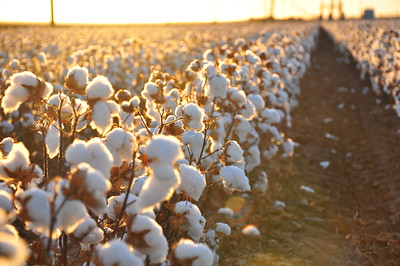This article was originally published on 7 April 2021, updated on 28 April 2021. Updates located at the bottom of this page.
On April 6, 2021, it was revealed that the International Olympic Committee has contracted a Chinese textiles company with ties to Xinjiang cotton to make this year’s Olympic athlete uniforms. While it was widely known months earlier in September 2019 that Hengyuanxiang Group would be making the outfits for the 2020 Tokyo Olympic Games’ opening and closing ceremonies – both of which attract hundreds of millions of viewers across the globe – the textile companies’ recently uploaded online products list Xinjiang cotton as being the primary fiber used. Moreover, Hengyuanxiang Group has a cotton franchise factory located in the Xinjiang Uyghur Autonomous Region.
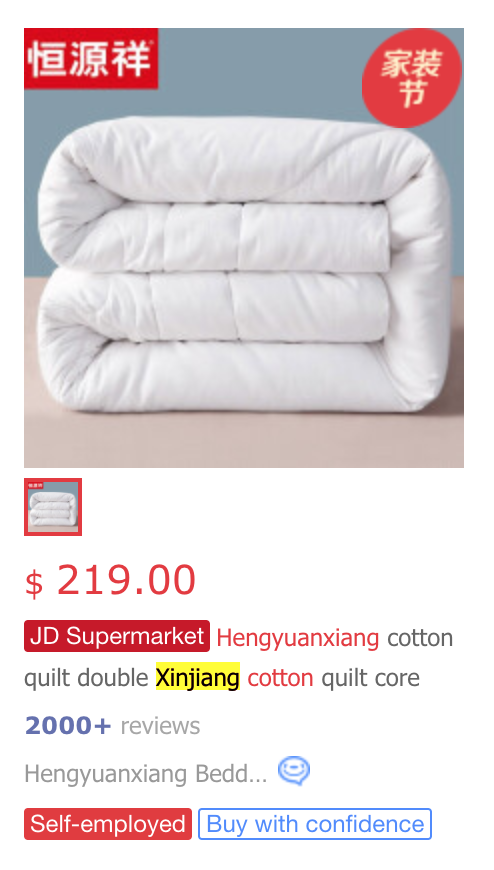
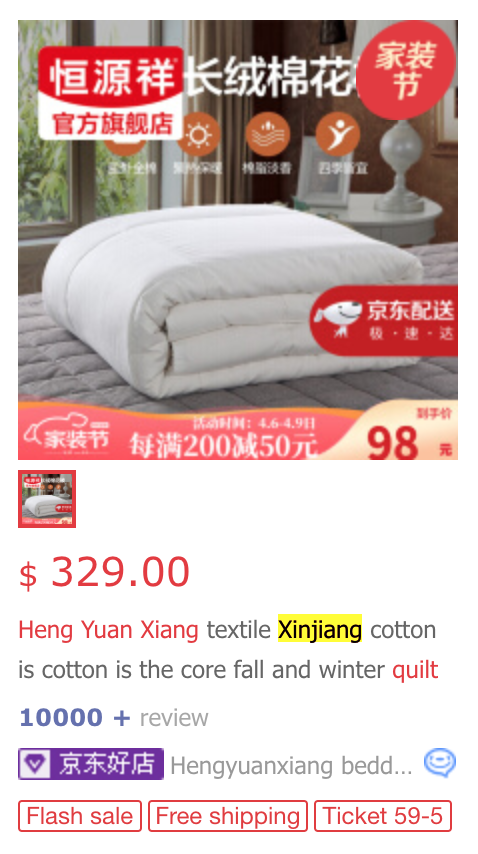
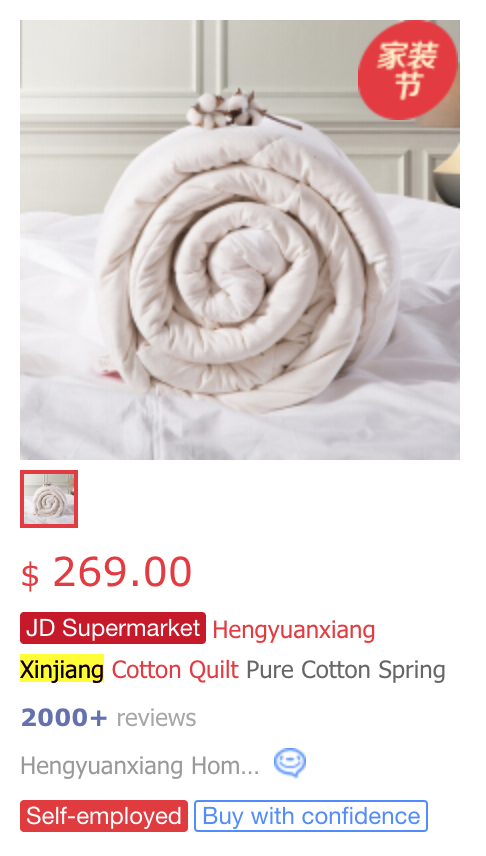
The news has sparked international outrage, considering the wealth of knowledge human rights advocacy groups have regarding Xinjiang factories’ complicity in Uyghur forced labor. In December 2020, Dr. Adrian Zenz, writing for the Center for Global Policy, published his groundbreaking report Coercive Labor in Xinjiang: Labor Transfer and the Mobilization of Ethnic Minorities to Pick Cotton. This report revealed harrowing statistics regarding how much of the world’s cotton is tainted by Uyghur forced labor; Xinjiang alone produces 20% of the world’s cotton, the majority – if not all – of which has been hand-picked by ethnic minority workers such as Uyghurs and other Turkic Muslims who have no choice to opt out.
As was revealed in both this report and the Australian Strategic Policy Institute’s earlier March 2020 report Uyghurs for sale: ‘Re-education’, forced labour and surveillance beyond Xinjiang, each year thousands of Uyghurs and ethnic minorities are ripped away from their homes, loaded onto packed trains, and transported to factory complexes. During the day, they are forced to endlessly pick cotton, and even outside of work they face surveillance, political and ideological indoctrination, and proscriptions on religious practice. The report estimates that in just three years between 2017 and 2019, no fewer than a whopping 80,000 Uyghurs were forcibly transferred to these prison-like complexes and into coerced manual labor.
Considering Hengyuanxiang Group’s enthusiastic online advertisements of its Xinjiang cotton-based products – and therefore the apparent risk that the company’s other textiles may be similarly produced – it is extremely concerning that Olympic athletes, some of which come from the most democratic and free countries, may soon end up wearing clothing tainted by slave labor. The risk is further exacerbated by the fact that China’s cotton supply chains are opaque and unclear, which means “it may be hard to determine if goods are made through the forced labor.” While one International Olympic Committee spokesperson alleged that Hengyuanxiang Group provided them with a certificate stating that the cotton that will be used for the Olympic uniforms was not harvested within China, proof of such certificate’s existence was never provided.
Regardless of whether the uniforms will include Xinjiang cotton, however, outspoken human rights activists have condemned the Olympic Committee for even collaborating with the Group in any capacity. Some have even shared their perspective that the Olympic Committee’s contract with Hengyuanxiang will send a message that forced labor in the cotton industry is permissible, and even rewarded:
“The Olympics should have no association with corporations producing in the Uyghur Region. Partnering with a company that not only sources from the Uyghur Region but boasts about it in its product advertising is morally reprehensible. At a time when the world is waking up to the horrors taking place in the Uyghur Region, the IOC appears to be turning a blind eye.” – Penelope Kyritsis, Director of Strategic Research, Worker Rights Consortium
See below some more reactions:
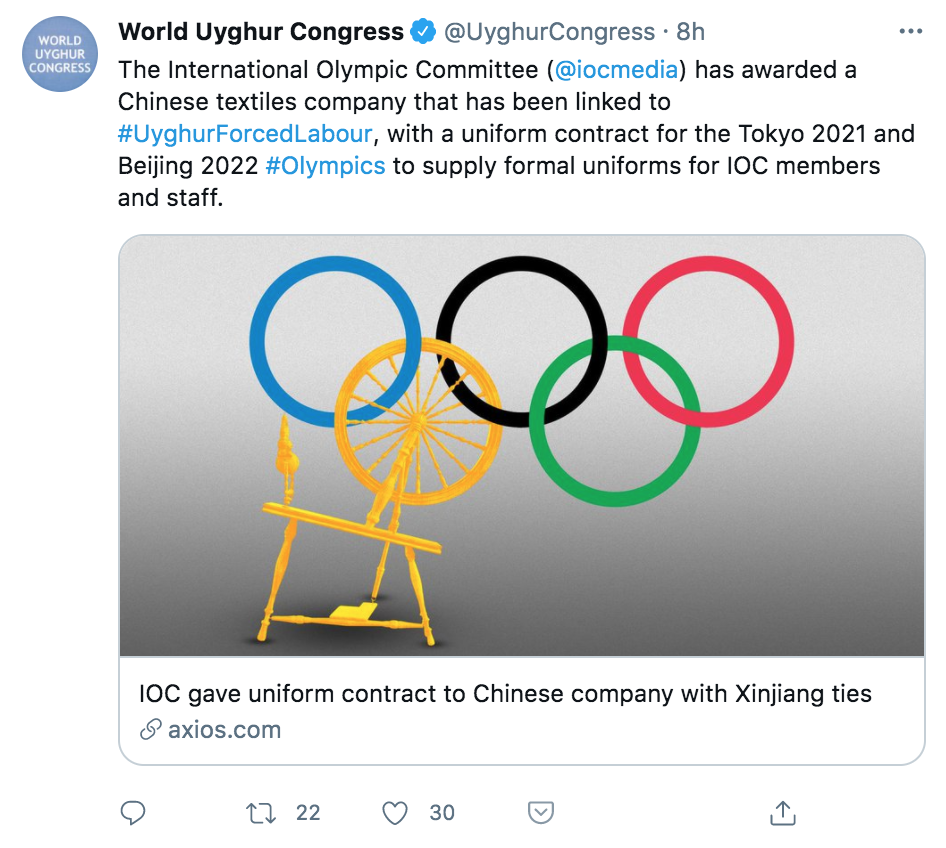
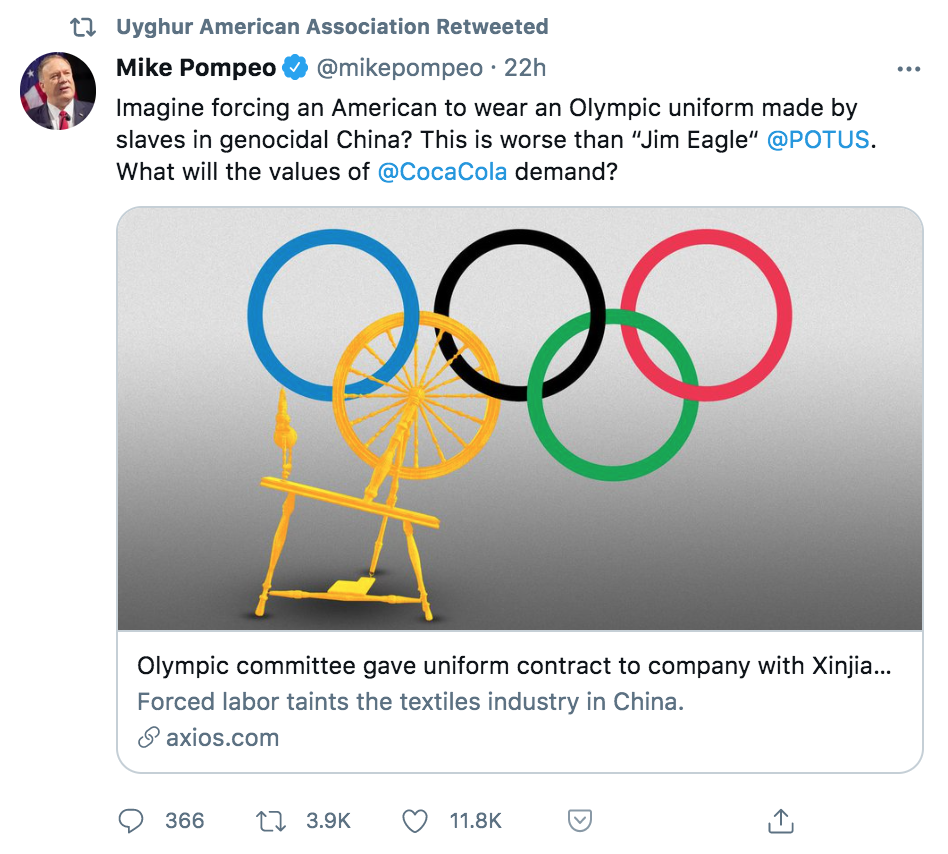
On 27 April 2021, it was revealed that another company contracted by the Olympic Committee to make uniforms and shoes for the Summer 2020 Tokyo Olympics and Winter 2022 Beijing Olympics, a company by the name of Anta, refuses to provide clarification as to whether the products they plan to supply to the Olympics have been made using Xinjiang cotton. Anta had previously released a statement in March 202t stating that "we have always bought and used cotton produced in China, including Xinjiang cotton, and in the future we will continue to do so." While Anta products do not yet been directly linked to forced labor in the Xinjiang region, "due to the opacity of supply chains in China and the secrecy surrounding forced labor factories, it's very difficult to determine which products are tainted", and whether such tainted products would be used during the upcoming two Olympics seasons.
Cover image by Kimberly Vardeman on Flickr (CC BY 2.0)

